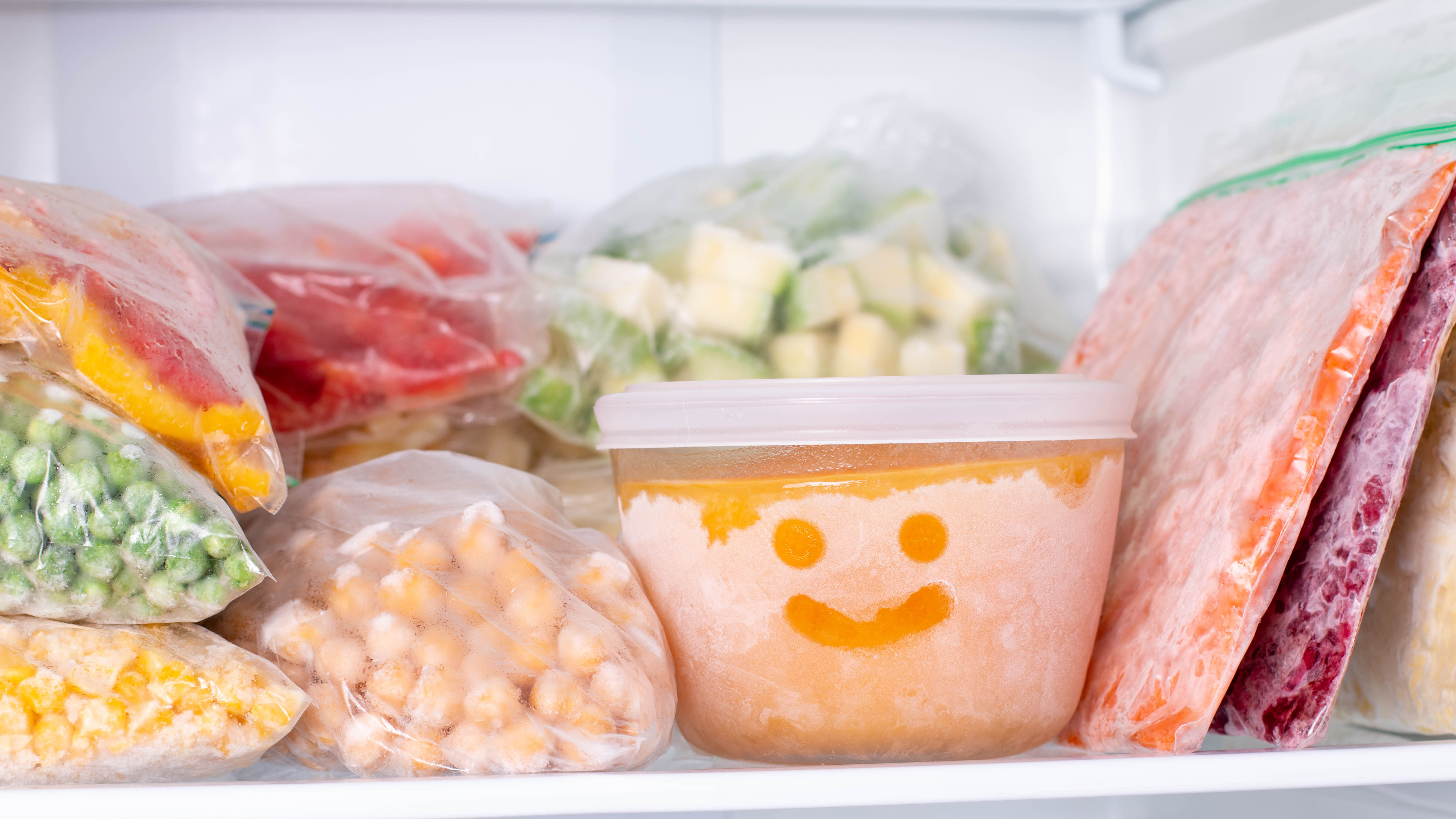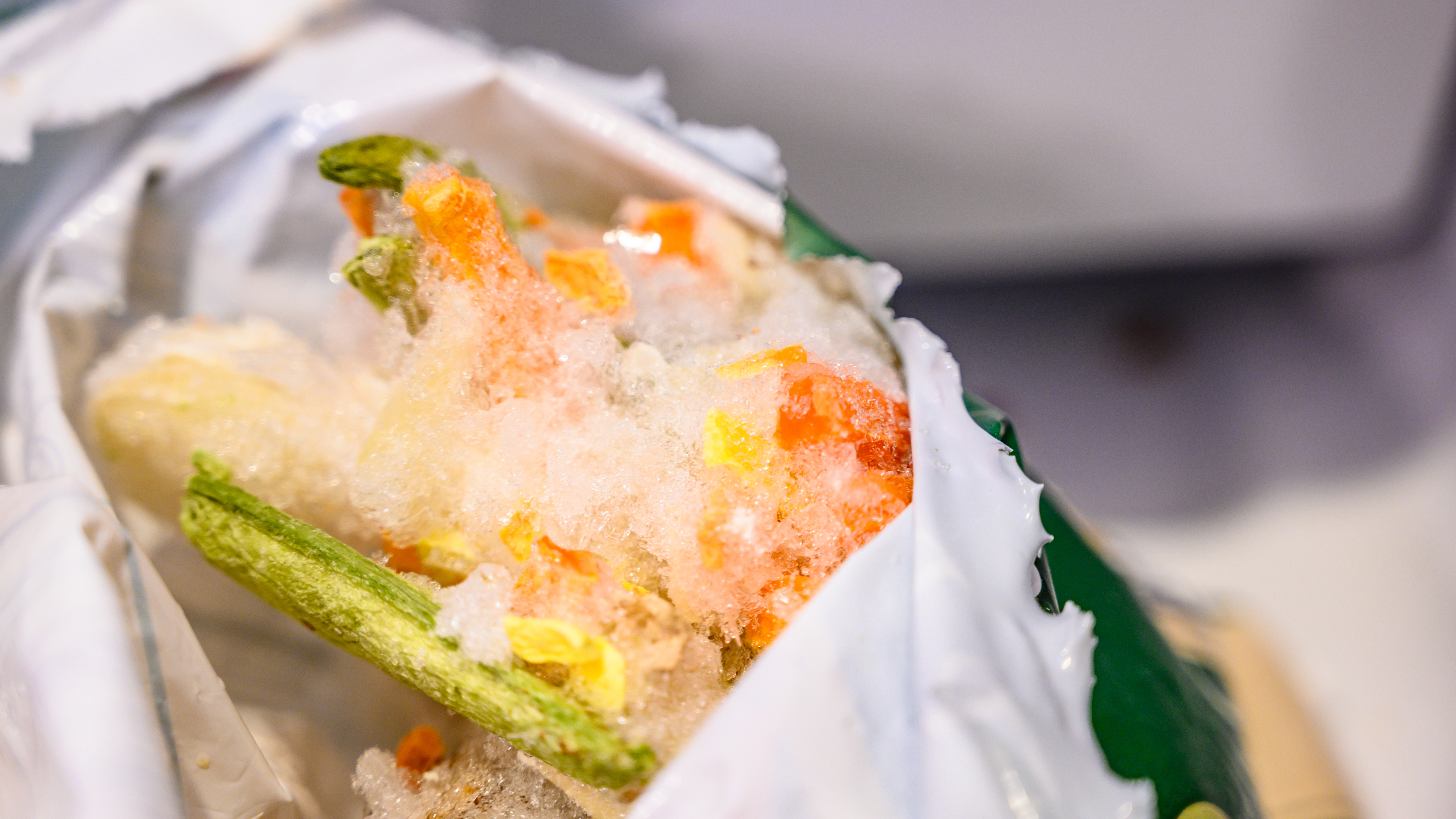3 Reasons why you shouldn’t overfill your freezer
Struggling to fit food in your freezer? Time to sort through it

When we're faced with a plate of leftovers or an untouched steak that’s not quite out of date, we always resort to the freezer. In the end, it saves money and waste right?
Unfortunately, that’s not always the case. Many of us are guilty of overloading the freezer and forgetting what’s in there. After all, it’s so easily done when food lasts forever once frozen (again, sadly this just isn’t true).
While a full freezer is better than an empty freezer in terms of energy use, if you forget what you've stored, that food will still go to waste once it loses its quality — and that's true even if you're using the freezer compartment in one of the best refrigerators. It can also be one of the reasons why your refrigerator isn't cooling properly.
Fortunately, we have some tips to get around this common problem. So here are three reasons why you shouldn't overfill your freezer.
While you're doing that, these are 5 tips to organize your fridge and make food last longer. Plus, ever wondered how long will food last in your freezer? We've got the answer.
Why shouldn’t you overfill the freezer?
1. You will forget what you've frozen
It sounds like common sense, but most freezers will contain something we've forgotten about or even don't recognise! As we stack and stuff more food into the drawers or shelves, we can't see what's underneath or behind. This results in storing the older food unnecessarily and eventual waste when we finally get rid of it — you may as well have thrown it out in the first place! On top of this, if your freezer is overloaded, it can’t circulate the air properly to maintain its temperature, so the food may not be effectively frozen.
Get instant access to breaking news, the hottest reviews, great deals and helpful tips.
2. The food will lose its quality over time
While food which is fully frozen will technically be safe to eat, no matter how long it is stored, it will lose its quality over time. This can affect its flavor, texture, aroma and even its appearance. You may notice freezer burn on some foods, which appears as a white or a grey-brown discolouration. This is where the food hasn’t been sealed properly and the air has dried out the surface. Again, this won’t hurt you, but it will affect the taste and texture.

3. It could damage your freezer
While a full freezer runs more efficiently than an empty one, overfilling it can potentially block the air vents. This in turn will restrict the air circulation and put added pressure on the motor and condenser. Not only could this spoil all of the food, but it could burn out the freezer altogether, resulting in costly repairs.
Bearing in mind all of the above, it’s best to know exactly what’s in your freezer and when you want to use it. Here are some tips you can follow to help keep things in check.
Freezer tips
- Label your food with the date before you freeze it. That way, you can eat the older food first. If you’re freezing something without packaging, or something homemade, it’s good practice to label what it is too, so you don’t forget.
- When filling your freezer, place new items at the back, and bring those at the back to the front to help rotate.
- Freeze things flat where possible. This makes it easier to stack and store.
- If you’re struggling for space, remove the packaging before freezing it. This can save lots of space, particularly with items such as freezer pops. Just be sure to make a note of the dates.
- You can also defrost the freezer once in a while to give yourself more space by getting rid of any built-up ice.
Next: Check out our guide to the 18 foods you should never store in the freezer.
- More: Check out our guide to how to clean an oven

Katie Mortram used to be a Homes Editor for Tom's Guide, where she oversaw everything from kitchen appliances to gardening tools, as well as smart home tech. Specializing in providing expert advice for cleaning and home manintenance, she now works as Household Advice Editor for Good Housekeeping.
 Club Benefits
Club Benefits





